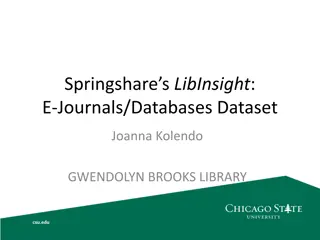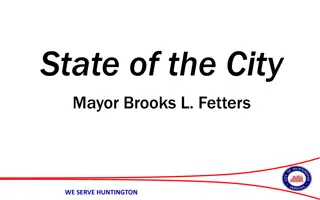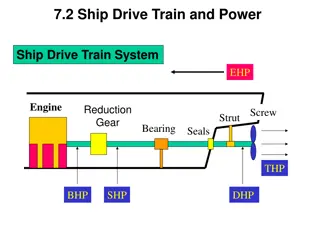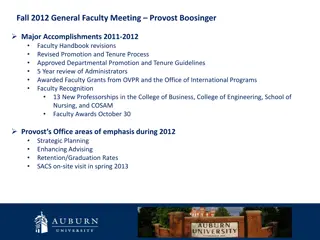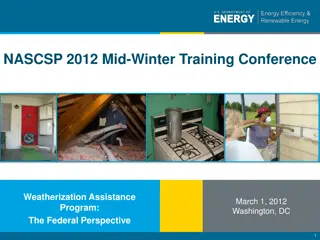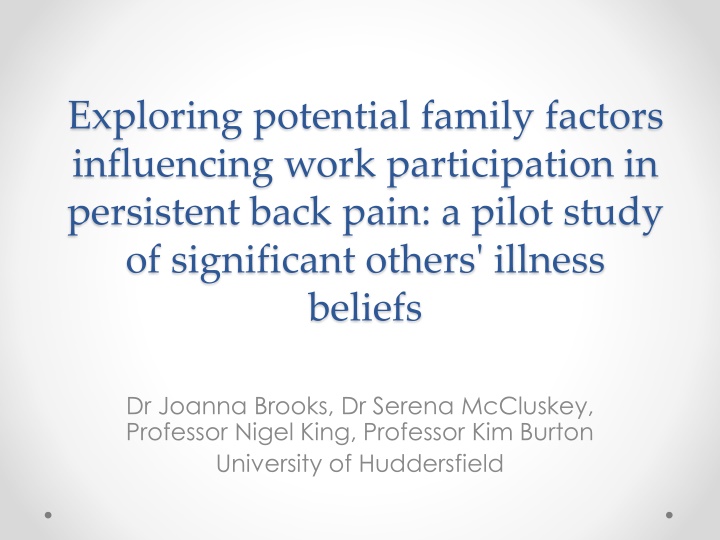
Family Factors in Persistent Back Pain Work Participation
Explore potential family factors influencing work participation in persistent back pain through a pilot study on significant others' illness beliefs. Researchers aim to understand how individuals' and their significant others' beliefs about illness impact work outcomes. This qualitative study delves into the consequences of illness, nature of work, and patient identity in the context of back pain.
Uploaded on | 1 Views
Download Presentation

Please find below an Image/Link to download the presentation.
The content on the website is provided AS IS for your information and personal use only. It may not be sold, licensed, or shared on other websites without obtaining consent from the author. If you encounter any issues during the download, it is possible that the publisher has removed the file from their server.
You are allowed to download the files provided on this website for personal or commercial use, subject to the condition that they are used lawfully. All files are the property of their respective owners.
The content on the website is provided AS IS for your information and personal use only. It may not be sold, licensed, or shared on other websites without obtaining consent from the author.
E N D
Presentation Transcript
Exploring potential family factors influencing work participation in persistent back pain: a pilot study of significant others' illness beliefs Dr Joanna Brooks, Dr Serena McCluskey, Professor Nigel King, Professor Kim Burton University of Huddersfield
Background Back pain is a very common condition The costs of reduced work capacity due to back pain substantially outweigh direct medical costs Work is good for you Identifying obstacles to work participation is therefore an important goal
Illness beliefs Individuals illness beliefs appear to be important for both clinical and occupational outcomes However, little work thus far on - the influence of illness beliefs on back pain and work participation; - the illness beliefs of significant others
Research aims To use qualitative research methods to explore beliefs about illness held by individuals with back pain and their significant others To extend previous research by including individuals who had remained in work despite persistent back pain in addition to those who had become incapacitated for work, along with their significant others
Methods N = 9 dyads (5 employed; 4 out of work) recruited from secondary care setting; Semi structured interviews based on dimensions of SRM (illness identity; perceived causality; timeline expectations; consequences; beliefs about curability & control) conducted; Analysed using template analysis (King, 2012; Brooks & King, 2012)
Key findings Consequences of illness Nature of work Patient identity
Consequences of illness working sample In terms of what does it impact on, well it doesn t impact on anything, cos he doesn t not do anything because he s got pain. He s definitely not sitting around not doing anything going I ve got a back problem . He gets fed up with it, but it s not really stopped him [Tess significant other, working sample]
Consequences of illness non-working sample Going to supermarket, we ve got to go together now. Before she d go on her own, but now we ve to go together. Because she s got trolley to hold onto she s alright, but a loaf of bread and one or two other bits in the bag and that s it. But four pints of milk, you know, she can t pick more than one up, so we ve to go together [Harry significant other, non-working sample]
Consequences of illness Fears around potential (rather than actual) consequences? I can t leave him to walk up town on his own. Crossing roads he s really slow, all it takes is one car through a red light, you know. It does frighten me so I don t leave him on his own [Belinda significant other, non-working sample] True extent of disability rather less than indicated? She has to sit out once or twice at line dances [Frank significant other, non-working sample]
Nature of work working sample Accommodations and flexibility at work Informed and confident regarding rights and worth to employer Line management
Earlier this year actually the HR department were starting to ask questions around his time off for his back injections I cover HR as part of what I do, and I basically said Get back to work and tell them to get lost and we ll take a claim against them if they try this one because the only reason you can go to work is because your pain is managed for you and you ve worked for them for bloody donkey s years The trouble is it s not necessarily the people you re working with, it s someone over there who doesn t know you from Adam, who s making decisions about you who doesn t know the full picture [Vikki significant other, working sample]
Nature of work non-working sample She can t sit for too long before she s to get up to move around and she can t stand for long before she needs to sit down. What job is there in that line of work? She can t sit at the check-out with twisting, at the cigarette kiosk you re stood up and moving around, so there weren t really a lot they could find she could do [Harry significant other, non-working sample]
Patient identity Participants themselves did not draw on socio-economic factors (including nature of work) to account for work participation outcomes Current functional status explained rather in terms of personal narratives: hero or victim
Significant other as true witness His workmates thought There s nowt wrong with you, you re sat down, you re walking around , but once he s sat down, he s got pain but they can t see that, they didn t see that [Belinda significant other, non-working sample] She covers it up so people don t realise, everyone thinks she s alright, but she s not, she s putting on a brave face, I know [Brian significant other, working sample]
Patient as hero working sample He s incredible really. He has an amazing pain threshold. He can push that pain threshold up to another level and he must do that psychologically because why is he different to anybody else? It can only be a mind over matter thing can t it, and how he has this determination where he won t let it, he won t give in to it and he won t let it beat him and he doesn t want to give in [Vikki significant other, working sample]
Patient as victim non-working sample He was wrongly accused of something, somebody wrote to them to say he was claiming disability fraudulently and they were investigating for fraud, they sent a letter to his supervisor asking if he knew anything about his disability .. It makes me so angry, they took his car off him, the disability living allowance off him, and now we re having to fight for them back again [Belinda significant other, non-working sample]
Summary of conclusions In the face of stigmatising socio-cultural beliefs about benefit cheats and malingering , significant others may feel it is important to support patients by emphasising their inactivity and/or disability Many disadvantaged individuals become entrenched in a position whereby it becomes all the more important to be seen as truly disabled Activity avoidance is in direct opposition to clinical guidelines for best practice management
Implications Implications for current changes to welfare system in the United Kingdom Significant others as a potentially valuable way of mobilising readily accessible resources in a way that supports optimal functioning
Acknowledgements Grateful thanks to Dr Dimple Vyas (Calderdale & Huddersfield NHS Trust) for her assistance with recruitment, and to all the research participants Funded by a Philip Poole Wilson Seed Corn grant from the Bupa Foundation
References Brooks J, McCluskey S, King N, Burton K: Beliefs about illness amongst significant others and their influence on work participation outcomes for back pain patients. University of Huddersfield 2012 [http://eprints.hud.ac.uk/13217/]. McCluskey S, Brooks J, King N, Burton K: The influence of significant others on persistent back pain and work participation: a qualitative exploration of illness perceptions. BMC Musculoskeletal Disorders 2011, 12: 236. King N: Doing Template Analysis. In Qualitatve Organizational Research: Core Methods and Current Challenges. Edited by Symon, G and Cassell, C. London: Sage; 2012: 426 450. Brooks J, King N: Qualitative psychology in the real world: The utility of template analysis. University of Huddersfield 2012 [http://eprints.hud.ac.uk/13656/].



